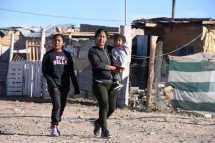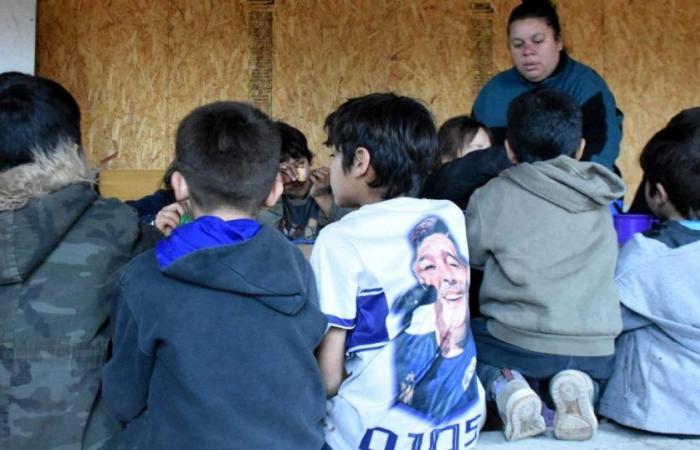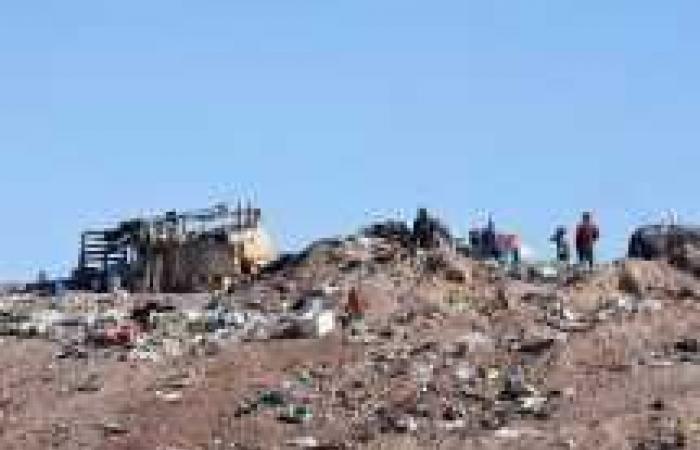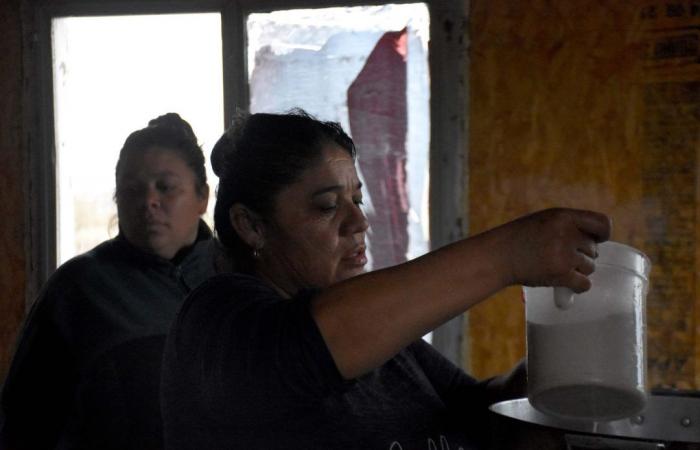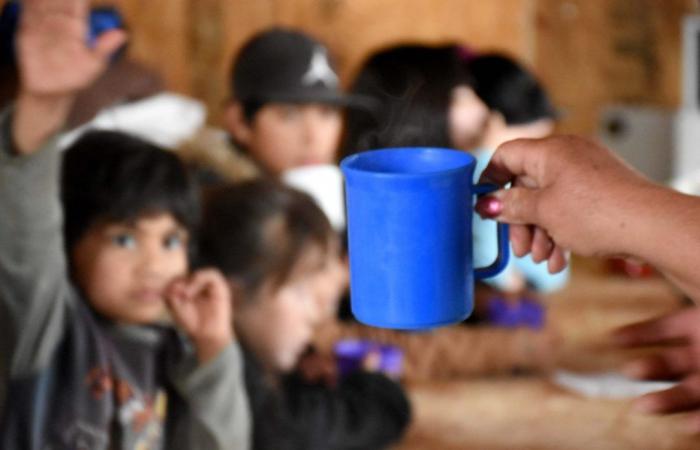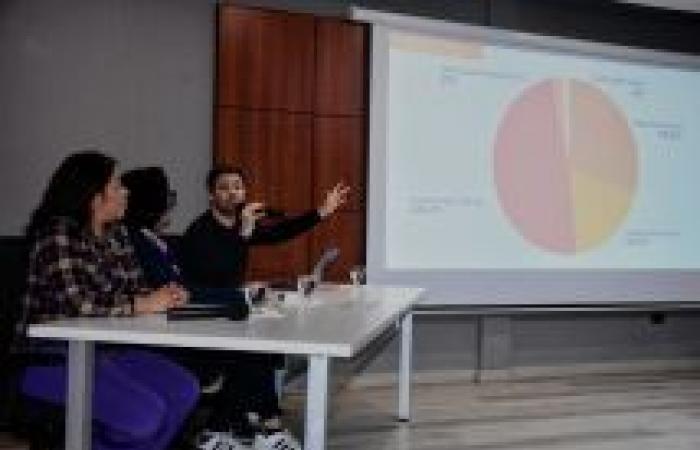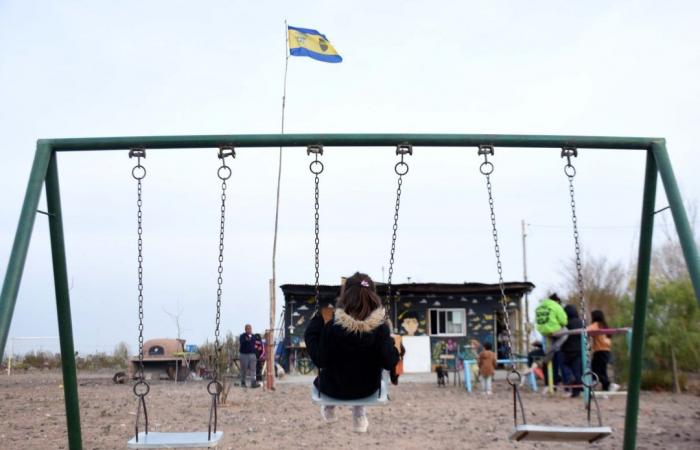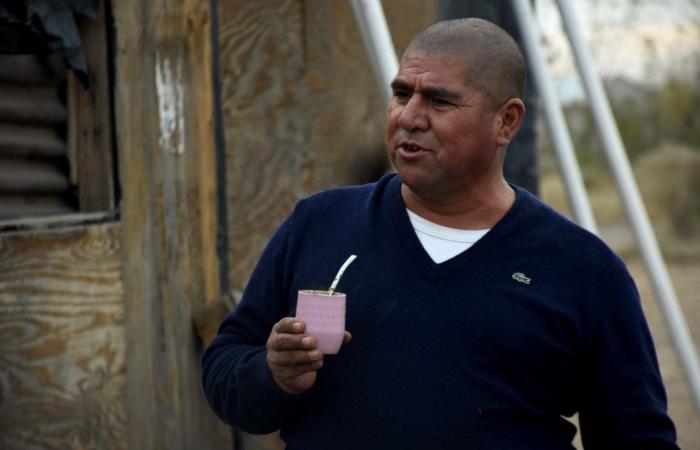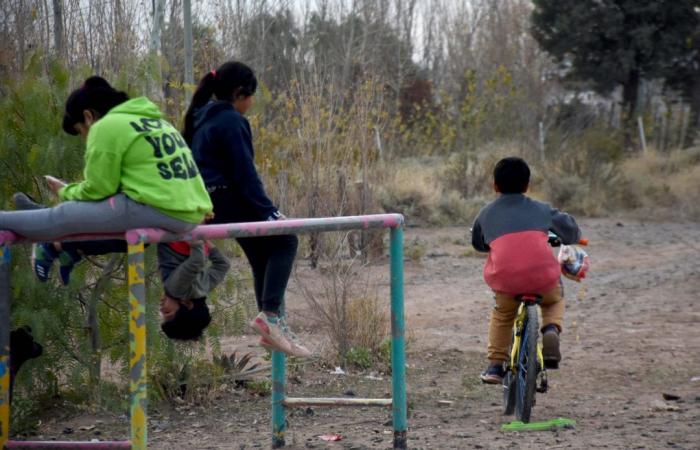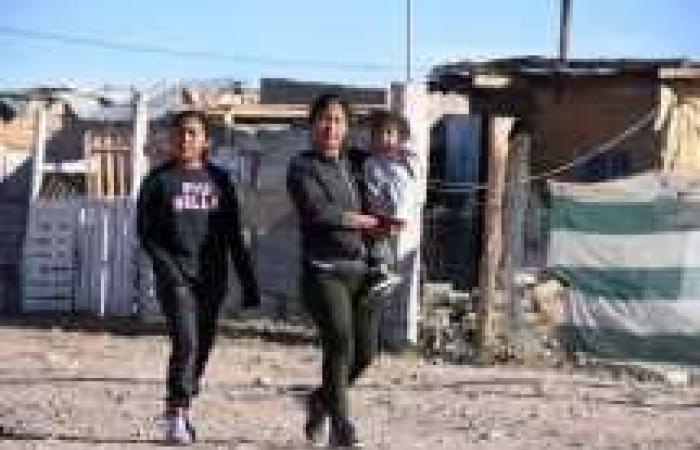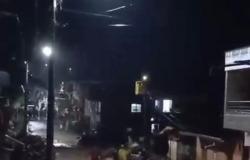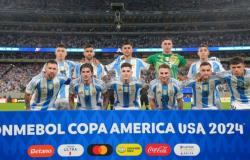-The milk! Who is going to drink milk? Dale Mateo, Andrés, are you going to drink the milk? No? Well, Juan! The milk! Come, ready now! Come on, come on, come on. Grab a place. Look if there is a lack of bench. Is there a lack of banking there?
They release the ball and the hammocks for a while. There is a huge pot on the kitchen stove and Rosa is filling the cups. Near the dirt paddock, Nino is frying the torn calzones on an iron disc. As they come out, they are distributed. Warm, with freshly sprinkled sugar. The “La Rosenda” picnic area It now works in a material construction, on El Trigo Street in Colonia Rural Nueva Esperanza, but It was born from a lighter and a small pot.
Six years ago they began giving milk to the boys and girls in their house, which is at the back of this property. When they arrived “It was a peeling field, all fields and high jarillal”. “I had a chata on horseback, a little mare, I went to the stalls because people live very far away. We were going to leave the milk, the fried food so that the kids wouldn’t come. Those who were close came,” Rosa said.
From there the picnic area moved on to a large piece of sheet metal, with nylon and pressed wood walls, which has drawings by the artist Pabla Arias (Miss Ojos). Since they are such fragile materials, the rain and wind damaged them. In any case, Rosa takes advantage of it. There she kneads on a plank. Monday, Wednesday and Friday they serve milk to about 50 boys and girls: from one year old to 14. In winter it starts at 3 p.m., because it gets dark at 6 p.m. In summer they usually stay until 8pm. All they have, she explained, is “with the help of the people of the center, like this, from the heart”. Every other Saturday they make lunches with what they donate.
“Monday is milk with cooked mate, Wednesday is rice pudding with torn calzones, on Fridays chocolate with donuts. So that the kids don’t get tired,” she said.
On Tuesdays and Thursdays the picnic area is closed because they are days that Rosa dedicates to “ironing.” The idea is that they take the leftover milk and a bag with the fried food in plastic bottles.
-How are you doing neighbor?
Raquel came in, coming to help. There is also Estela, and Silvia, a lawyer who came across a post about the picnic area on Facebook and comes to give school support classes to the boys and girls.
“I went to school very little, I don’t know how to read, now the teacher comes and tells me: “Rosa, did you do the homework I gave you?”, she commented.
The 49-year-old woman had seven children. “I know what the need is, I went through it, and I wanted to do it for the kids, there are little children here who are like six little brothers, who seemed like they were starving, they came and ate,” she added.
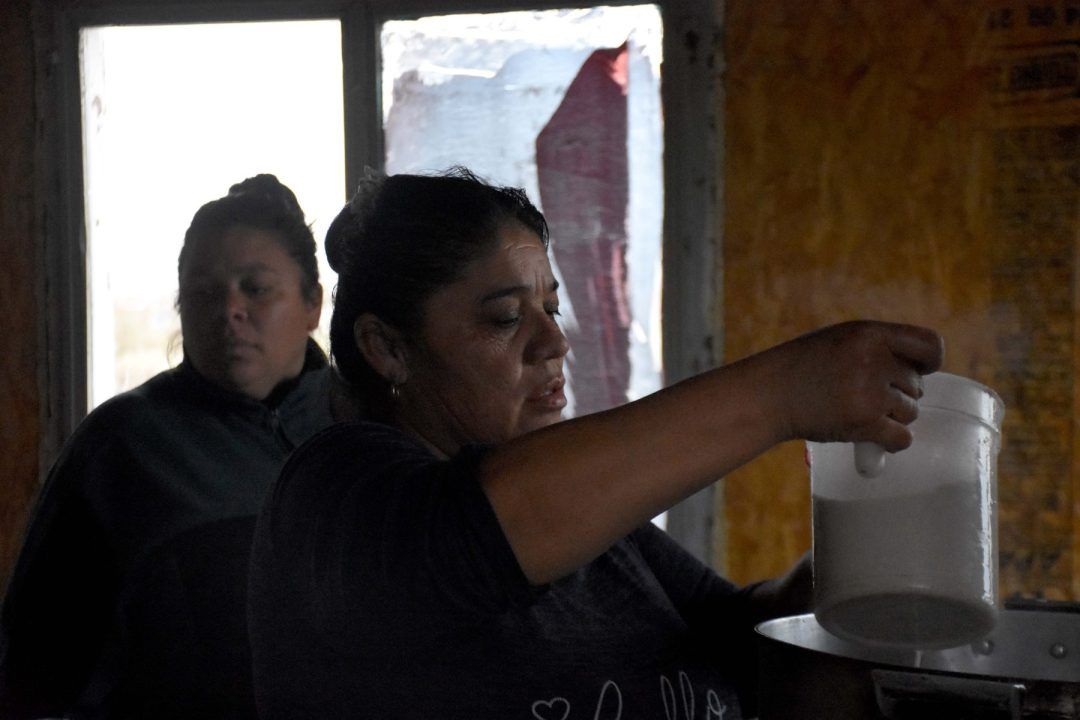
With Nino they worked in the garbage dump. They gathered aluminum, copper, rags, bottles to sell. In the Colony there are many farmers who buy. They came in at 8 and left at 18.
“There we also saw many kids taking bread out of the garbage to eat, it looks a lot, and now we and Nino have this picnic area, thank God, we give them a hand so that they don’t go there in the garbage either,” he said.
-Say hello son.
Rosa insists. “They came, they entered like a herd of horses and I: “You have to come in, greet the moms who are helping, not say bad words. They are taught a lot of respect and they have learned, eh.”
He acknowledged that he likes what he does. “It’s good for me too, because you have company with the kids from other families,” he noted.

«The only way out up here is shopping»
“Mine is without politics,” Nino clarified, while checking the flour. He said that he doesn’t like the “skinny chamuyo”. “They come, they promise you, they hold the line for three years and then they appear when they need elections, when they need numbers, for them the kids are numbers, the people are numbers. The little boys have a heart, they have a belly, they are hungry, my friend,” she said.
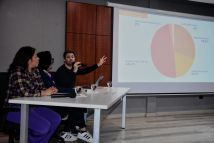
He boasts that he does not put the flag on anyone, nor lend any party the gate for a poster. The only flag that flies is that of Boca and there is a graffiti of “Dale Lobo”, because the guys from Patagonia Tripera made them “the last one”. From there they got the t-shirts with the face of D10S. “I’m not going to love Maradona? It is a feeling, a passion. It’s Argentina, Maradona”answered.

The plateau is a large sector of the city of Neuquén. There is the Colony, but company warehouses were also installed, and the open-air dump where they reach 10,500 tons of waste per month from five locations, including the capital.
Nino calls him “the shopping”. “There is everything there. It’s like going to the shopping, what’s in the shopping? There are clothes, there are food, toys. With Rosa we worked bocce there. The only way out up here is the garbage dump, it’s the job my old man did. I was going to look for food for the animals. “I told my old man not to go anymore and I started going,” she said.

The last survey carried out by the provincial government at the garbage dump determined that 17% of the census population was under 18 years old. This newspaper published at least four cases of boys who suffered serious injuries when hanging from trucks and a teenager who did not survive.. “I saw the little ones die there, crushed by the presses, that’s why I do this, because I lived there, I ate from the garbage, I dressed myself, friend”Nino assured.
And he emphasized: “For the people here it is a job, from there we eat, from there we dress, and Now they put a neighborhood next to the shopping center, worse! more kids to the garbage dump, that makes you angry, friend.” Nino refers to Lot 34, where the municipality of Neuquén relocated the population that lived in the Casimiro Gómez settlement. The government also recorded in that document how proximity to the complex affects quality of life, but until now there has been no intervention plan.
“Many children are arriving, with the wig (Milei), more people are arriving,” Nino mentioned. One of the boys says hello and leaves on his bike, with his bag of torn underwear. He promises to return, they know they will receive him.

Those who want to help can contact Merendero La Rosenda on Facebook.
